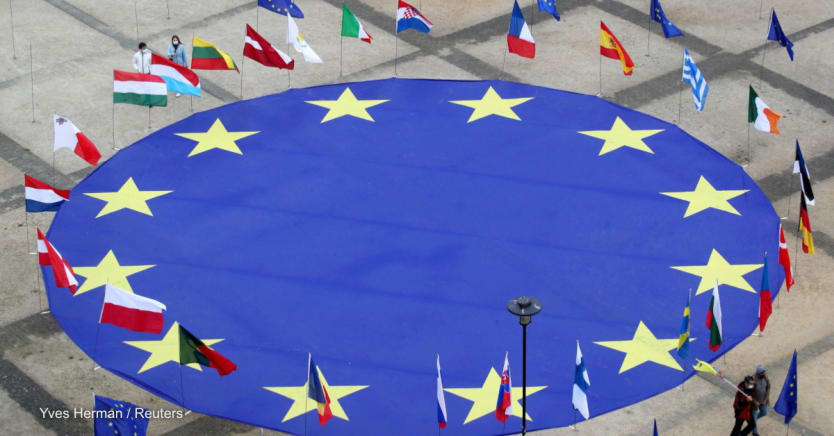
European Union states are fuming after the European Commission argued that it alone should sign a partnership agreement with 79 African, Caribbean, and Pacific countries, rather than try to get it ratified in European parliaments.
The proposal, sent to EU national representatives in Brussels last week, was expected after the commission left the parties to the Post-Cotonou Agreement in brackets when initialing the text in April.
Still, member states in the Council of the EU reacted angrily to the latest move and vowed to withhold their approval for the pact until the commission changes the text to a so-called mixed agreement.
“The Commission’s decision to present an EU-only agreement, in opposition to the request by the EU Member States and the ACP-partners and the many delays along the way have damaged the trust relationship between the Council and the Commission,” one EU diplomat, speaking on condition of anonymity, told Devex.
The Post-Cotonou agreement covers a wide range of issues, including maritime safety, human rights, migration returns and readmissions, youth, persons with disabilities, the blue economy, private sector development, science and research, and more.
Merijn Chamon, an assistant professor of EU law at Maastricht University, said the text is likely one of those tricky agreements that are completely covered by EU competences — i.e., those able to be exercised by the EU institutions but not EU-exclusive competences. Such “shared competences” do not necessarily have to be exercised by the EU institutions, and Chamon said the legal understanding is that national governments’ involvement is a political decision left to them.
For now, the Dutch government said in response to a recent parliamentary question that EU member states are “unanimous” in their wish for a mixed agreement. At a Nov. 30 council meeting, 24 countries spoke in favor of a deal involving them.
A commission spokesperson told Devex that it had proposed an EU-only agreement “as the EU has competence in all areas covered by the agreement.”
A Polish diplomat, speaking on condition of anonymity, argued that the text includes areas covered by shared competences of the EU and its member states. The diplomat added that countries mandated the commission to conclude a mixed agreement and that the current text falls even further under member states’ remit than the 2000 Cotonou Agreement, which was a mixed agreement.
Exclusive: European Commission battles to sell post-Cotonou deal at home
The EU executive says it has finally reached a deal on the bloc's relationship with African, Caribbean, and Pacific states. Now it needs to win over EU governments. A few issues stand in the way.
However, with Hungary threatening to block the deal over concerns about migration, there are also practical considerations. Memories are still fresh in Brussels of the EU trade agreement with Canada that was almost derailed in 2016 by opposition from Belgium’s Wallonia region.
The commission spokesperson noted that an EU-only deal would also “ensure swift application of the agreement.”
An EU-only deal still requires the unanimous backing of all 27 EU states, effectively giving each national capital a veto. However, a mixed agreement also gives countries visibility to champion or criticize the partnership when pursuing ratification at home.
There are examples of other EU-only agreements, Chamon said, such as an association deal with Kosovo — which is not recognized by some EU states — and the Trade and Cooperation Agreement with the U.K. signed at the end of last year. The council insisted in both those cases that they did not set a precedent, but Chamon said it still left states open to the argument from the commission that “legally the council must think this is possible, so why complicate things?”








